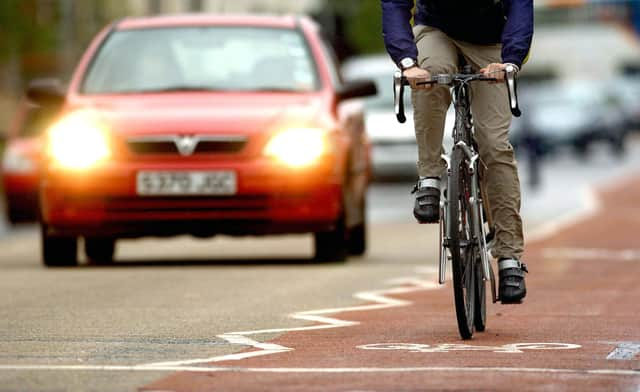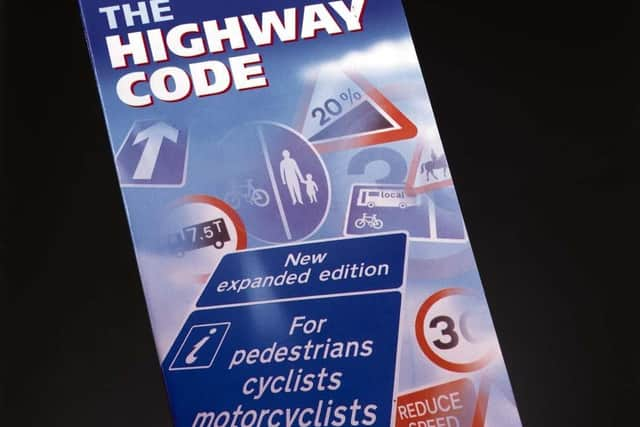Highway Code changes 2022: What are the new Highway Code rules for self-driving cars this year?


On January 22nd, a range of changes were introduced to the Highway Code. The new guidance meant that traffic should give way when pedestrians are crossing or waiting to cross at junctions.
Cyclists are also advised to ride in the centre of lanes on quieter roads, in slower-moving traffic, and when approaching junctions, to make themselves as visible as possible.
Advertisement
Hide AdAdvertisement
Hide AdA hierarchy of road users is also being introduced, meaning someone driving will have more responsibility to watch out for people cycling, walking, or riding a horse, and cyclists will have more responsibility to be aware of pedestrians.


In total, nine sections of the Highway Code were updated, with 50 rules added or amended. The changes are advisory, so non-compliance will not result in a fine.
On April 20th, it was announced that further rule changes would be introduced for self-driving cars. Here’s what you need to know.
What are the Highway Code changes in 2022 for self-driving cars?
Users of self-driving cars will not be responsible for crashes under proposed changes to the Highway Code. Instead, insurance companies, rather than individuals, will be liable for claims in those circumstances, the Department for Transport said (DfT).
The update to the Code will make it clear that motorists must be ready to take back control of vehicles when needed. The DfT also intends to allow drivers to watch television programmes and films on built-in screens while using self-driving cars. It will still be illegal to use a phone behind the wheel.
These measures - which follow a public consultation - were described as an interim measure by the Government to support the early deployment of self-driving vehicles. A full regulatory framework is expected to be in place by 2025.
There are no vehicles approved for self-driving on Britain's roads, but the first could be given the go-ahead this year. However, the DfT announced in April 2021 it would allow hands-free driving in vehicles with lane-keeping technology on congested motorways. Existing technology on the market such as cruise control and automatic stop/start is classified as "assistive", meaning users must remain fully in control.
Transport minister Trudy Harrison said updating to the Highway Code will be a "major milestone in our safe introduction of self-driving vehicles", which she claimed will "revolutionise the way we travel, making our future journeys greener, safer and more reliable".
Advertisement
Hide AdAdvertisement
Hide Ad"This exciting technology is developing at pace right here in Great Britain and we're ensuring we have strong foundations in place for drivers when it takes to our roads,” she continued. "In doing so, we can help improve travel for all while boosting economic growth across the nation and securing Britain's place as a global science superpower."
The development of self-driving vehicles could create around 38,000 new jobs in Britain and be worth £41.7 billion to the economy by 2035, according to the DfT.
Steve Gooding, director of motoring research charity the RAC Foundation, said driverless cars "promise a future where death and injury on our roads are cut significantly" but there is likely to be a "long period of transition" while drivers retain "much of the responsibility for what happens".
Additional reporting by PA.
Comments
Want to join the conversation? Please or to comment on this article.

